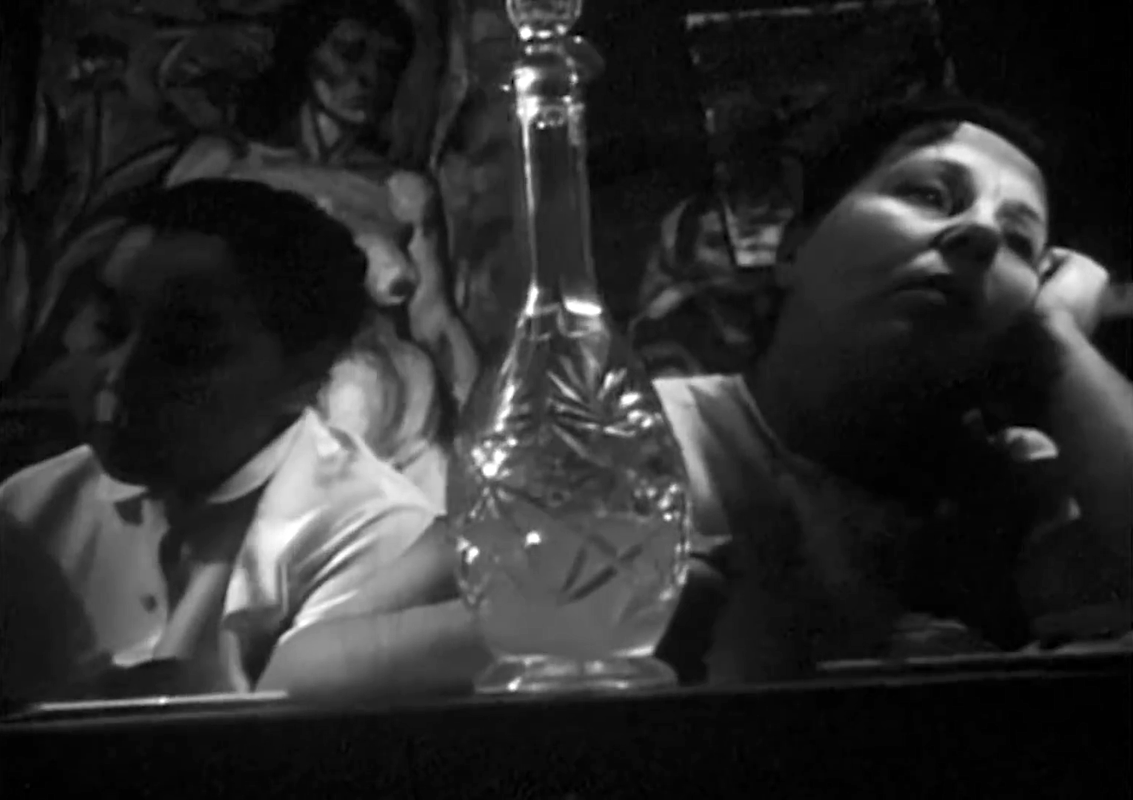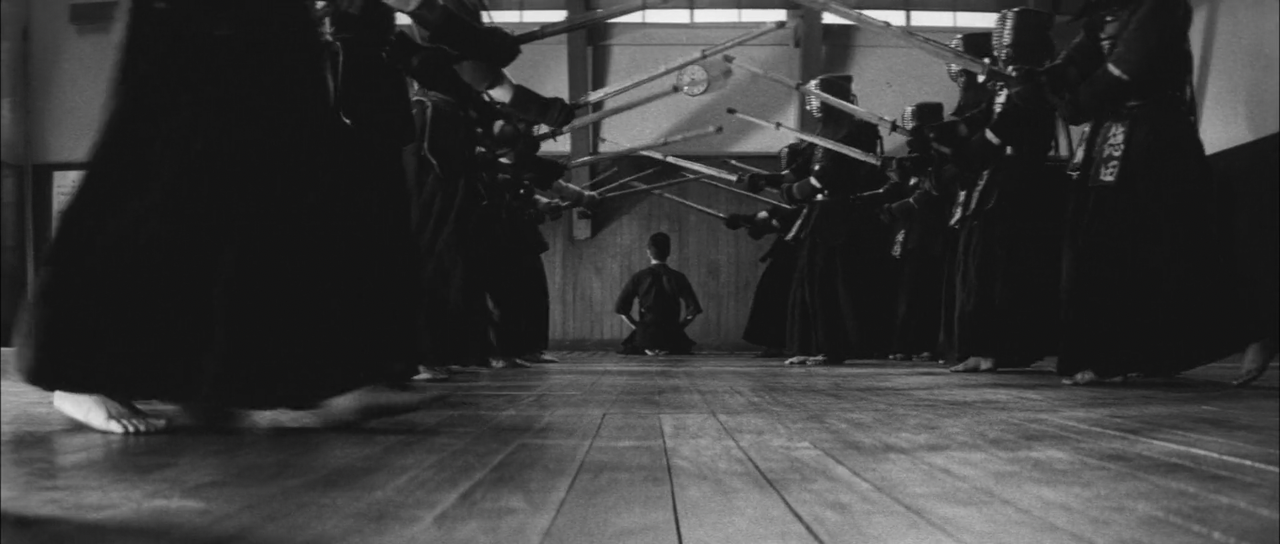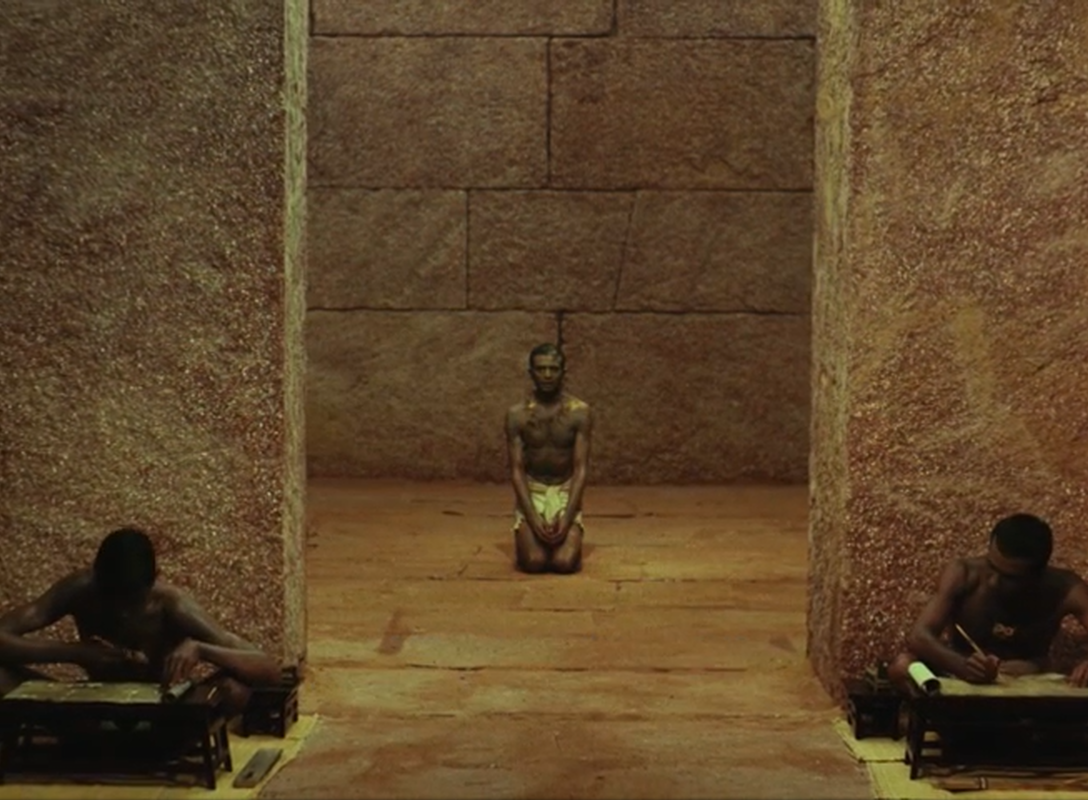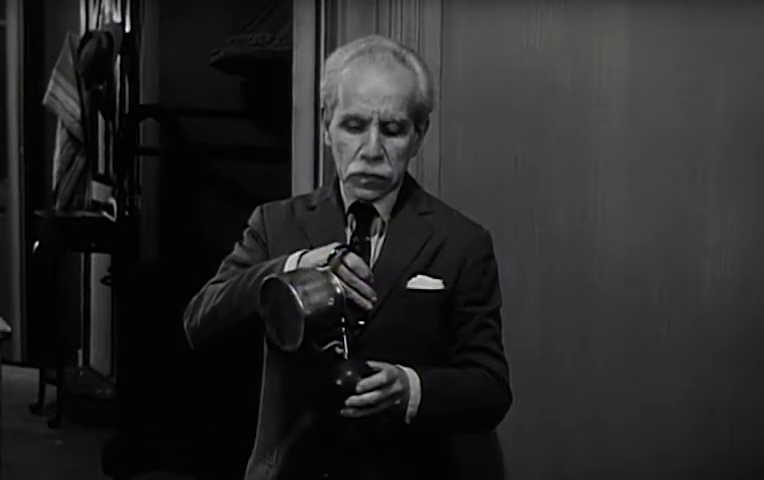– Do you play?
– Try me.The Thomas Crown Affair (Norman Jewison, 1968)
Jan
26
champagne

A production photo showing Thomas Crown (McQueen) and Vicki Anderson (Dunaway) sharing foods and drinks. Them seem enthralled with each other. DP: Haskell Wexler.
1960s
Touha zvaná Anada [Desire Called Anad / Adrift] (Elmar Klos + Ján Kadár, 1968/1971)
Jan
21
salt

Semi-off screen, an older man with a moustache at a dinner table – many plates, glasses, and foods – reaches for a bowl of salt. DP: Vladimír Novotný.
Восточный коридор [Vostochny Koridor / Eastern Corridor] (Valentin Vinogradov, 1967)
Jan
15

People eating, drinking, singing. DP: Yuri Marukhin.
Les yeux cernés [Marked Eyes] (Robert Hossein, 1964)
Jan
11
baguette

A young woman with big eyes and a dark bob (Marie-France Pisier) picks crumbs out of a fresh baguette. She's somewhere in a dreary small town. The snow's almost gone. DP: Jean Boffety.
A cavallo della tigre [On the Tiger's Back / Jail Break] (Luigi Comencini, 1961)
Jan
6

Two men in a doorway with a stunned look on their faces and their mouths stuffed with food. DP: Aldo Scavarda.
– So what is your goal in life then? – Satisfaction of the present. The sword, and nothing else.剣 (小説) [Ken / The Sword] (Kenji Misumi, 1964)
Dec
29
Tick Tock Day

One of the kendōka kneeled on the floor in gruelling punishment faces a clock on the wall, while the other students continue their training. DP: Chikashi Makiura.
A clock face on Tick Tock Day (USA)
After World War II, the Japanese martial arts of #kendo was banished by the occupying forces in an attempt to “remove and exclude militaristic and ultra-nationalistic persons from life”. With that in mind, it makes complete sense that nationalist author and former kendo practitioner Yukio Mishima wrote a short story – Sword, originally published in literary magazine Shincho in 1963 – about the art.
Both the story and Kenji Misumi's 1964 film adaptation follow arrogant kendo student Jiro, played by sublime kabuki actor Raizō Ichikawa who also appears in an earlier Mishima adaptation, 炎上 [Enjō / The Temple of the Golden Pavilion / Conflagration] (1958).
飼育 [Shiiku / The Catch] (Nagisa Ōshima, 1961)
Dec
26
offerings

An altar with two rotund, smiling stone statues – possibly Jizō, a bowl of rice with chopsticks stuck into it, and a Japanese soldier's photograph. The position of the chopsticks tells us that the soldier has died. DP: Yoshitsugu Tonegawa.
Празник [Praznik / The Feast] (Đorđe Kadijević, 1967)
Dec
25
Christmas dinner

Soldiers eating bread at a set table. DP: Aleksandar Petković.
“He's a peasant. Without looking into his situation, words are all he has.”شكاوى الفلاح الفصيح [El-Fallâh el-fasîh / The Eloquent Peasant] (Chadi Abdel Salam, 1970)
Dec
23
National Farmers Day – India

The peasant (Ahmed Marei) in a stone temple, flanked by scribes. DP: Mustafa Imam.
Farmers for Kisan Divas [National Farmers Day] (India)
4000 years ago, Egypt, Middle Kingdom. A peasant, leading his mules past a stream of water, is tricked. With his animals gone, he pleads to the Pharaoh to restore Maʽat, harmony.
Chadi Abdel Salam is not only this film's director, but also a trained architect, later set and costume designer. His eye wordlessly speaks the passing of time in the smallest of details. The withering of ferns, desert sand staining linen, the Sun merging with skin. At once, the universal presence of the gods becomes visible.
